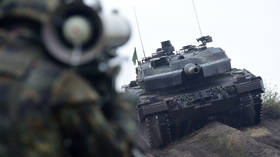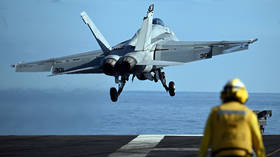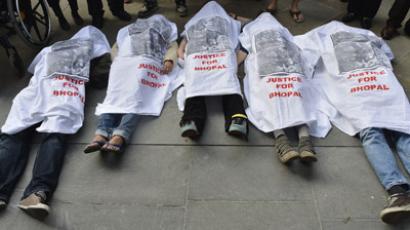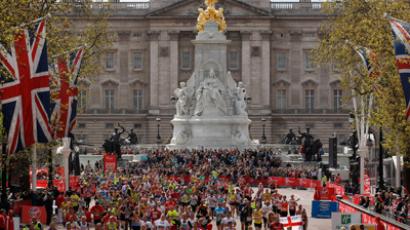Missiles next door: Rooftop London bases to protect Olympics
London residents were startled to discover that their housing complex was to be used as a military base to lodge a missile system. The UK Defense Ministry says it’s all part of an effort to counter a terror threat during the London Olympics.
Coming to a neighborhood near you
Instead of their morning mail, residents of the upscale Bow Quarter residential complex received leaflets from the Defense Ministry. It was a worthy read: a high-velocity missile (HVM) battery is to be installed on the rooftop of the Lexington Building Water Tower. The surface-to-air rockets are capable of shooting down airplanes within a five kilometer range, and are aimed at preventing a terrorist strike during the London Olympics. Why did the military select a residential block as the location for the missile battery?“The location has been chosen as it is situated close to the Olympic Park and offers an excellent view of the surrounding area and the entire sky above the Olympic Park,” the leaflet reads. The Olympic Park in east London will play host to most of the events of the Games, which are set to begin July 27. But many denizens weren’t happy with the news at all. “Yesterday my girlfriend brought home the leaflet,” resident Brian Whelan told Euronews. “I was absolutely shocked. I couldn’t believe that this would be announced in such a flippant way. Just a leaflet put through the door – some posters put up. I don’t think that’s any way to tell people you are putting a missile base on their roof.”Local business owners questioned whether the missile system would make the neighborhood safer or attract terrorists’ attention.“We don't really know if it will make us feel safer or more of a target,” an employee of Madison’s, a local restaurant was quoted by The Guardian as saying. Residents won’t need to wait until the Olympics to see the system in action. The leaflet says the batteries will be deployed with dummy missiles for a national Olympic security exercise Wednesday. And that’s not all. The Defense Ministry states there are, in fact, several locations that could be used to deploy surface-to-air missiles, though a final decision is yet to be made.“As announced before Christmas, ground-based air defense systems could be deployed as part of a multilayered air security plan for the Olympics, including fast jets and helicopters, which will protect the skies over London during the games,” the Defense Ministry said in a statement. It’s all part of the Defense Ministry’s 1.2 billion-euro Olympic Security plan. The Defense Secretary had previously confirmed that Typhoon fighter jets, helicopters, two warships and bomb disposal experts would all be deployed to London as part of the plan. That’s alongside 13,500 troops to be dispatched to safeguard Olympic events throughout the city.
Psychological warfare?
Journalist Paul Lashmar believes the measures are aimed at scaring would-be terrorists from orchestrating an attack. But he also notes the public and the authorities may all be engulfed in a pre-Olympic terror threat frenzy.“I think there’s a bit of psychological warfare going on here,” Lashmar told RT. “I think they’re letting anybody who is thinking of a terrorist attack know that these extensive preparations are being made… It’s all part of a mounting air of hysteria that’s sweeping London that you’ve got this huge event occurring and you’ve got this looming 9/11 threat about it.”As for the Bow Quarter residents wary of the missiles, Lashmar notes that they’re not the ones that should be in awe. “Actually, it’s not the people underneath the roof, it’s people within five kilometers that are in real danger,” he noted. “If those rockets are fired, it’s got to come down somewhere, and they explode, so anybody in a five-kilometer range is at risk if it’s fired.”














